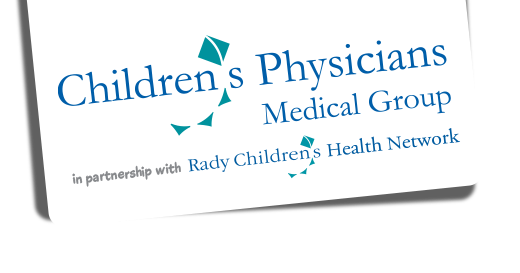Published in Mom’s Guide to San Diego – July 2014
By Jaime Friedman, MD, FAAP
When you visit your pediatrician for check-ups, one of the main things they will do is assess your child’s development. They are looking at four main categories; gross motor, fine motor, cognitive/social, and speech; which have specific milestones at each age. Keep in mind that all babies develop differently. Each milestone has a wide range of time during which reaching that milestone is normal. Therefore, don’t compare your child to anyone else. If you have a concern, ask your pediatrician.
Below is a rough guide through the first year and beyond:
NEWBORN
- Gross—minimal head and eye control
- Fine—grasp reflex, when something is place in the palm they will hold onto it
- Cognitive/social—begin to regard parent’s face and soothe to their voice
- Speech—vocalizations are mostly cries
2 MONTH OLD
- Gross—can lift head and chest while on the belly
- Fine—tracks parent, continued grasp
- Cognitive/social—smiles responsively
- Speech—starts to coo
4 MONTH OLD
- Gross—lift up to hands and roll to back
- Fine—reach for objects and pull to mouth
- Cognitive/social—turns to voice
- Speech—laugh and squeal
6 MONTH OLD
- Gross—sit, roll back to front
- Fine—transfer objects from hand to hand
- Cognitive/social—reaches for toys
- Speech—more babble
9 MONTH OLD
- Gross—crawl, pull to stand
- Fine—evolving pincer grasp
- Cognitive/social—plays peek-a-boo, some separation anxiety
- Speech—consonant-vowel babbles (mama, dada, gaga)
12 MONTH OLD
- Gross—cruising along furniture or walking
- Fine—pincer grasp, feeding self
- Cognitive/social—plays ball, indicates wants
- Speech—1-2 specific words
During the second year of life, the toddler years, all 4 categories continue to develop and expand. By age 2, most kids are walking, running and climbing. They can stack blocks and use utensils. Most kids will have 20+ words and will start making 2-3 word sentences. With regards to social skills, toddlers are developing their personalities and will start to have specific preferences. Sometimes, if they don’t get what they want or if they are unable to express themselves, they will have temper tantrums. On the other hand, this age can be really fun. They start to imitate their parents, play with toys appropriately (i.e. zoom a car around), and even follow simple commands.
By age 3, toddlers are nearing the preschool age and should be speaking in sentences with speech 75% intelligible by strangers. They can learn to pedal, learn their colors, do puzzles, and use a crayon. Most children are also potty trained by this age!
Again, all children develop at different rates. Keep your regular well appointments and be sure to ask your doctor about any concerns you may have.






